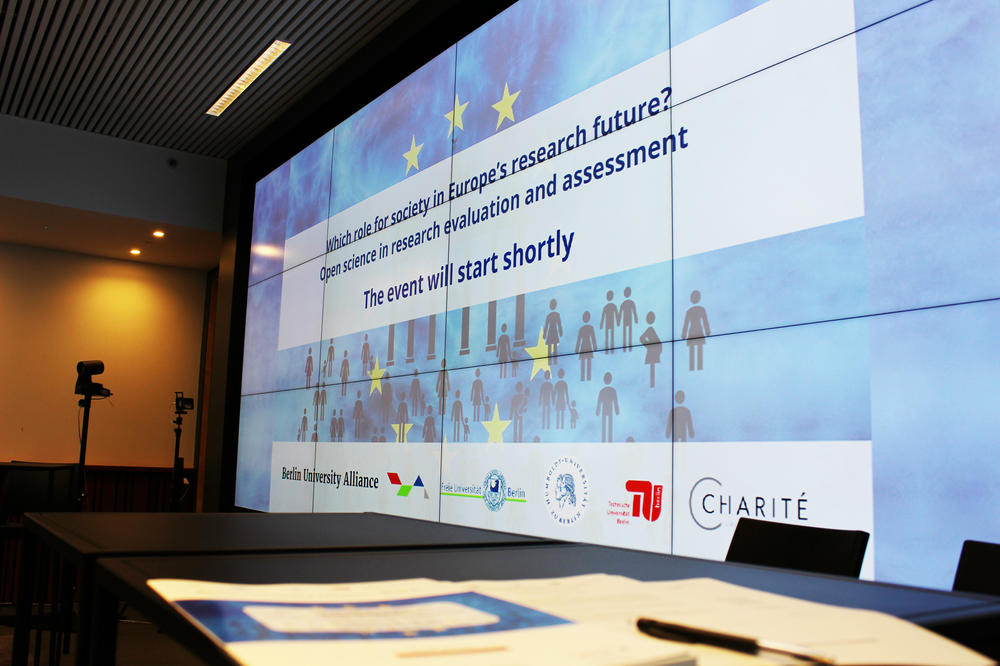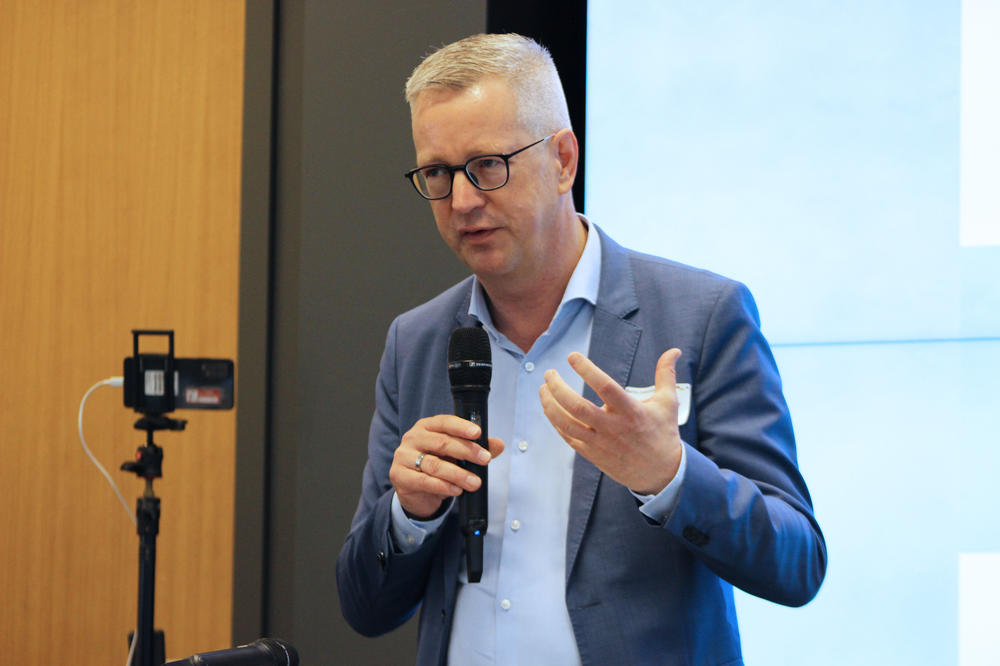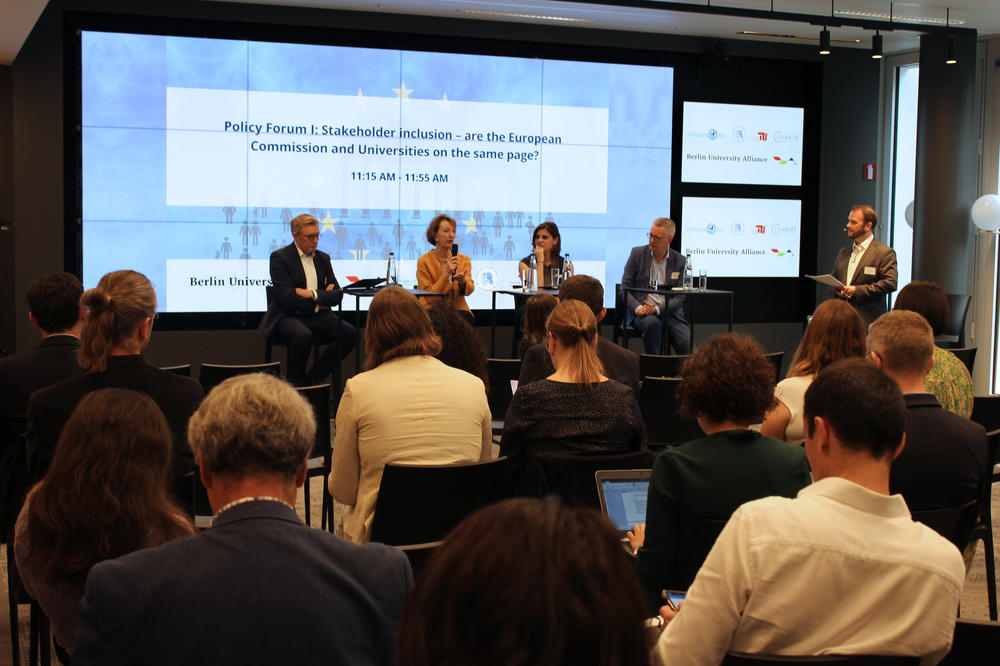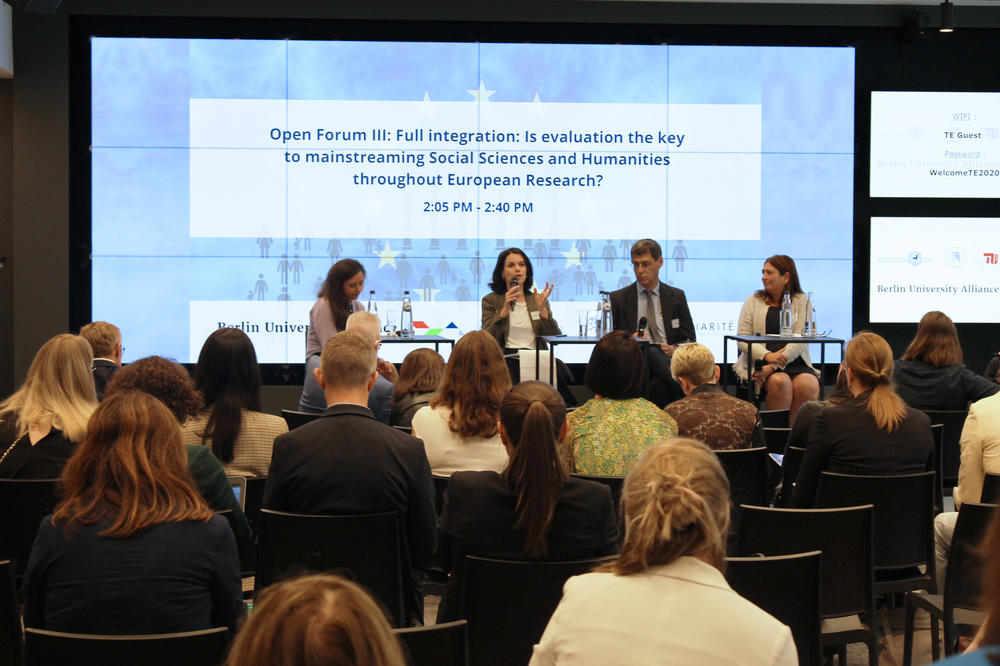BUA makes her first public appearance in Brussels
Conference on stakeholders and reforming research assessment
“Which role for society in Europe's research future? Open science in research evaluation and assessment”
Image Credit: Science|Business Publishing
On June 30, 2022 the Berlin University Alliance made its debut in Brussels as a young organisation with its four long-standing actors joining forces. The subject for this launch event brought together the idiosyncrasies of each of the partners with topical developments at the European Level, under the joint heading “Which role for society in Europe's research future? Open science in research evaluation and assessment”.
Two policy sessions embraced four panel discussions honing in on specific elements of stakeholder inclusion: How to deal with including societal actors in basic research? What can we learn from translational sciences and their experience with dealing with societal actors? Does including societal actors relate to the mainstreaming of SSH - social sciences and humanities and how can this be supported? And lastly: how does transdisciplinary science relate to societal actors and is this relevant for the newest experimental setting of European Research called “Missions”.
Prof. Dr. Günter M. Ziegler, President of Freie Universität Berlin
Image Credit: Science|Business Publishing
Prof. Günter M. Ziegler, President of Freie Universität Berlin welcomed all participants on behalf of the Alliance, pointing out, that the Alliance is closely connected in its aims to the current developments at European level, especially with regards to interacting with various societal partners.
The European Commissioner for Innovation, Research, Culture, Education and Youth, Mariya Gabriel, clarified in her keynote, that societal actors have a non-negotiable role in Europe’s research and warmly welcomed the Berlin University Alliance to Brussels. Berlin’s Senator for Higher Education and Research, Health, Long-Term Care and Gender Equality, Ulrike Gote, welcomed the conference as a notable next step for the international visibility and the engagement of the BUA in Europe.
Policy Panel I with Anna Panagopoulou, European Commission, and Maria Leptin, President of the European Research Council, among others.
Image Credit: Science|Business Publishing
The opening Policy Panel I set out an outline by Director Panagopoulou, European Commission, of the context and novel developments at EU-Level. Maria Leptin, president of the European Research Council embraced, that society does and should relate to science, as curiosity is a natural part of human beings. However, the scientific processes and method as well as uncertainty tend to be less well understood. Hence the action of the BUA in defining the third grand challenge initiative jointly with societal actors. But at which point should involving societal actors end? Should they decide? Assess researchers? And if so, how?
Especially in investigator-driven, fundamental research, explored in the first Open Forum: While there is a surprising variety of possibilities to engage with societal actors: Should these processes have determining influence on the research? Should such engagement be measured, and how? And how can this be addressed or used in research teams?
The Charité is very active in “translational science”, in “turning knowledge into health” with multiple ways of including various stakeholders and groups into the processes. Could this approach effectively be used as a template? Also for other grand challenges? What is a translational mindset, which languages have to be translated, and can the complexities of multi-stakeholder-processes really be captured?
The third Open Forum focused on the role of the social sciences and humanities in interdisciplinary and transdisciplinary research approaches.
Image Credit: Science|Business Publishing
The third Open Forum addressed the role of Social Sciences and Humanities in inter- and transdisciplinary research approaches: the role SSH had, has and should have in the future. And that the benefit, SSH could contribute to solving especially global challenges, will depend on the degree to which natural sciences will be open to true co-creation, instead of using SSH just for implementation. Transdisciplinarity is not only a core approach, an attitude embraced by the Berlin University Alliance, but also the principle at the basis of the five “Missions”, a new, experimental format for research in Europe. But does it fit into and interface with current research assessment processes? How can transdisciplinary research feed into the efforts for reforming research processes?
The closing Policy Panel II provided further thoughts on the limits for stakeholder inclusion, for example in fundamental mathematics. It highlighted fundamentally different approaches to agenda setting in the sciences in Europe’s member states. Trust, and the role of communication in science as opposed to in the media provided the backdrop to the discussion which role scientists and their work should have in our societies.
With an excellent reception, attended by various key policy players in Brussel, the BUA’s inaugural conference can be deemed a strong and worthwhile event, that certainly left those who attended with a very good impression.
Watch the recordings on the BUA website! The content will hit you soon enough, so, be prepared!
Further info: angelika.wilhelm@berlin-university-alliance.de




